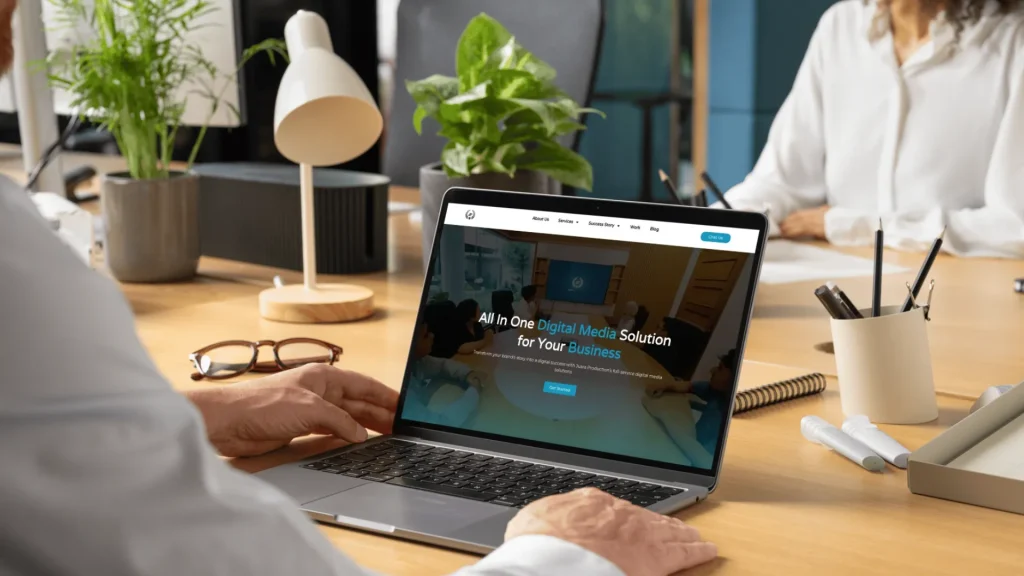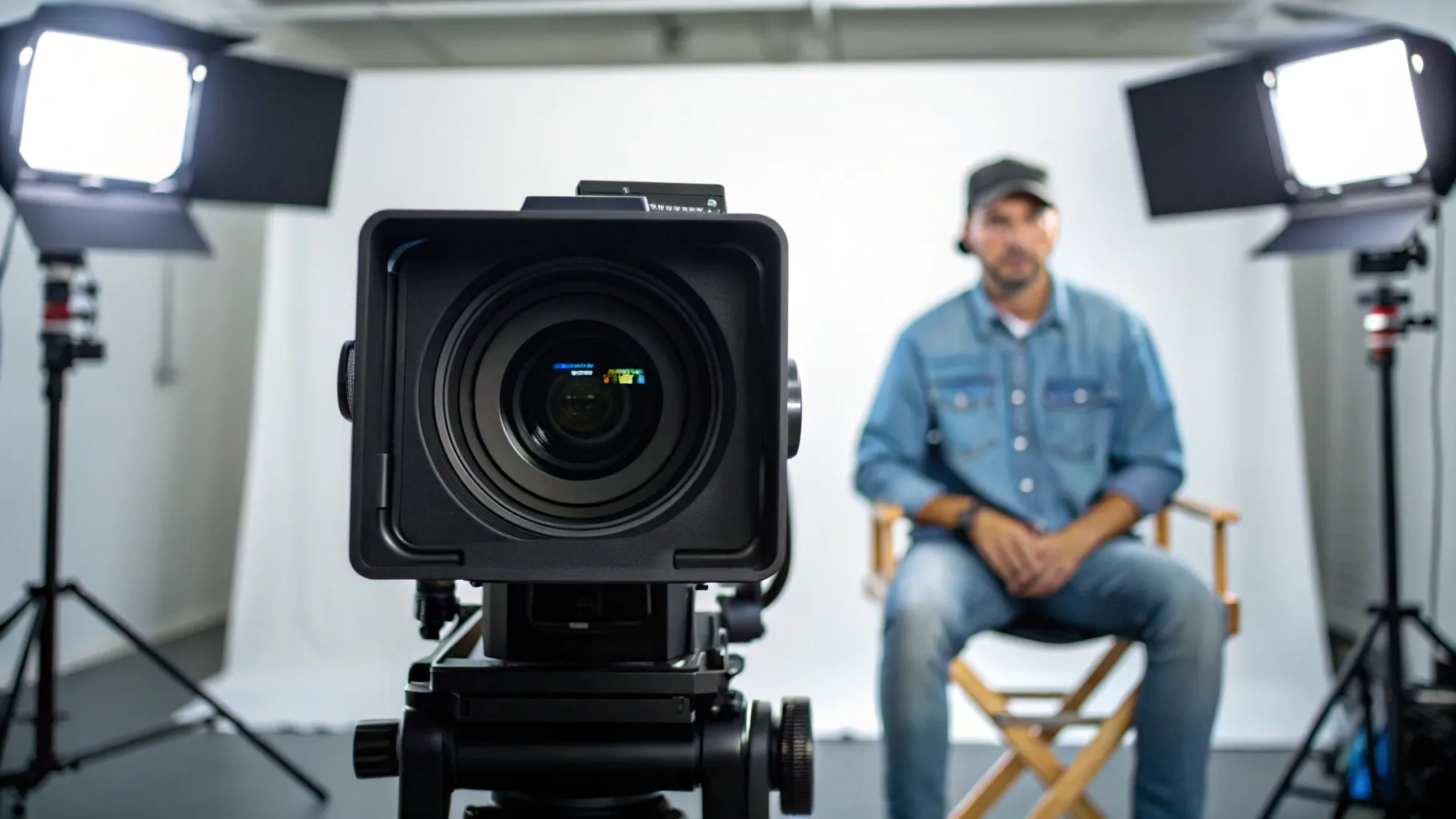What to Know Before Developing a Website For Business? Check Here!
Oktarina
July 15, 2025
9 min read

Ready to launch your dream website but unsure where to begin? Whether you’re planning to start a blog, an online store, or a personal portfolio, creating a website is an exciting journey to expanding your presence online. However, before diving into the development process, it’s essential to understand what to know before developing a website. Planning and foresight can make a huge difference in achieving your business goals, engaging your users, and ensuring your site performs well in search engines.
In this article, we’ll guide you through the key things to consider before building a website, why planning matters, and the steps to avoid costly mistakes. By the end, you’ll have a solid understanding of designing a website that aligns with your objectives, meets your users’ needs, and sets you up for success in the digital world.
Why Proper Planning is Crucial for Website Development?
Proper planning is the cornerstone of a successful website. Think of it as the blueprint for your entire project—it ensures that everything from design and content to functionality is aligned with your goals. Without it, your website could face poor navigation, unclear messaging, and missed opportunities to convert visitors into customers.
Planning prevents costly mistakes and saves valuable time during development. When you have a clear plan in place, everyone involved—whether you’re working with a team or handling it solo—knows exactly what to expect. This clarity minimizes confusion and sets the foundation for smooth, efficient work.
But it’s not just about avoiding pitfalls. Well-planned websites are more effective in attracting and engaging visitors. Ensuring that your design and content speak to your target audience makes it easier for them to navigate, find what they need, and take action. A thoughtful website plan also ensures that your site is built with SEO in mind, improving your chances of ranking higher in search engines.
Moreover, a properly planned site produces a better user experience (UX). The easier and more enjoyable it is for people to interact with your site, the longer they stay, and the more likely they are to become customers or repeat visitors.
Ultimately, proper planning sets the stage for a website that looks great and performs optimally, helping you achieve your business goals and impact your audience.
What to Know Before Developing a Website?

Developing a website can be an exciting and rewarding project, but before you jump in, there are several key factors you need to understand to ensure your site is successful. Whether you’re building your first website or launching a new business online, knowing what to consider before starting will help you make informed decisions, avoid common pitfalls, and create a website that looks great and functions effectively. Here are some essential things you should know before developing a website:
1. Define Your Website’s Purpose
Before diving into design and development, it’s crucial to define the purpose of your website clearly. What do you want your site to achieve? Are you building an e-commerce store, a portfolio to showcase your work, a blog to share ideas and insights, or a site focused on lead generation to attract potential customers?
Having a clear objective helps guide every decision you make, from design to content. Set specific, measurable goals, such as increasing traffic by 20% in six months or generating a certain number of monthly leads. These goals will help you stay focused and make the right choices for your website’s layout, functionality, and content. Understanding your website’s purpose ensures you build a site that serves your long-term business goals and resonates with your audience.
2. Know Your Target Audience
You must first understand your audience to create a website that speaks to your visitors and provides real value. Research their demographics, such as age, gender, location, and occupation, as well as their preferences, pain points, and goals. Knowing these details will help you design a site that meets their needs and expectations, increasing the likelihood of conversions, whether purchasing, filling out a contact form, or subscribing to your newsletter.
Analyzing your audience’s behavior is key. What devices are they using to browse? Are they looking for information quickly, or do they enjoy long-form content? The answers to these questions will help shape your website’s design and content strategy. By aligning your site with your audience’s preferences, you ensure that it not only attracts visitors but engages and retains them.
3. Understand Budget and Costs
Building a website involves several costs, and breaking them down early in the planning process is essential to avoid surprises. Key costs include:
- Domain: Users will type the web address (URL) to access your site.
- Hosting: The service that allows your website to be accessible online. Shared hosting, VPS, and dedicated servers all come with varying costs.
- Design and Development: The design of the website and the work needed to build it, either through a DIY platform or professional help.
- Ongoing Maintenance: Websites need regular updates, security checks, and backups, which can incur additional costs.
4. Focus on SEO and User Experience (UX)
SEO (Search Engine Optimization) and user experience (UX) are two of the most important factors for website success. A website that’s both SEO-friendly and offers excellent UX will perform better in search engines and provide a positive experience for visitors, encouraging them to stay longer and take action.
- SEO: To drive organic traffic, it is crucial to ensure your website is built with SEO in mind from the start. Fast loading times, mobile responsiveness, and optimized content (including images, meta descriptions, and proper use of keywords) contribute to better search engine results rankings.
- UX: A website that is easy to navigate, visually appealing, and fast-loading will keep users engaged and encourage them to explore further. A seamless UX helps reduce bounce rates and increase conversions, whether you’re aiming for product purchases, lead generation, or newsletter sign-ups.
A well-designed website isn’t just about looking good—it’s about providing visitors a seamless, enjoyable experience. If users find it challenging to navigate or the site doesn’t load quickly, they will likely leave before taking action.
Read more: What is Website Development? Everything You Need to Know!
Steps to Take Before Developing Your Website
Before jumping into website development, it’s essential to take key steps to ensure your site’s success. Planning helps you avoid mistakes, save time, and build a site that aligns with your goals. Here’s what to know before you start:
- Conduct Competitor Research
Start by analyzing your competitors’ websites to understand what works well and where there’s room for improvement. This will help you create a website that offers something unique and valuable to your audience. Please consider their design, layout, user experience, and functionality. - Create a Sitemap and Wireframe
A sitemap is a visual map of your website’s structure, helping you organize your content and plan the user journey. A wireframe is a blueprint for each page, focusing on layout and functionality. Together, these tools ensure your website is easy to navigate and meets user expectations. - Select a Domain and Hosting Provider
Choose a domain name that reflects your brand and is easy to remember. Then, select a reliable hosting provider based on your needs. Consider factors like uptime, speed, and support to ensure your website performs well and stays secure. - Hire a Qualified Team or Tools
Decide if you’ll develop the site using platforms like Wix or WordPress, or hire professionals for more advanced customization. If hiring, ask to see their portfolio and inquire about ongoing support after launch. You can work with Juara Production to build your website to get the best result. - Test and Plan for Maintenance
Before launching, thoroughly test your site’s functionality and performance. Plan for regular updates, backups, and security checks to keep your site running smoothly and securely.
Common Mistakes to Avoid When Developing a Website

Building a website is an exciting journey, but it’s easy to make mistakes that can cost you time and visitors. To create a site that performs well and delivers a great user experience, avoid these common pitfalls:
- Ignoring Mobile Responsiveness or Slow Loading Speeds
With more than 50% of web traffic from mobile devices, your website must be responsive across all screen sizes. Slow loading speeds can frustrate users and hurt your SEO ranking. Ensure your website is mobile-friendly and optimized for speed to keep visitors engaged. - Overcomplicating Navigation or Design
A cluttered, complex design makes it harder for users to find what they need. Keep your navigation simple and intuitive. Organize content logically, and ensure key pages are easy to access. A clean, user-friendly layout enhances engagement and encourages visitors to stay longer. - Neglecting SEO Best Practices
Ignoring SEO during development can hurt your website’s visibility. Implement basic SEO practices like optimizing images, using proper header tags, and writing clear meta descriptions. This will improve your search engine ranking and help potential visitors find your site. - Underestimating the Budget or Timeline
Many people underestimate the costs and time involved in building a website. To avoid delays and frustration, ensure your budget and timeline are realistic—plan for hosting, domain, design, development, and ongoing maintenance. - Skipping User Testing
Don’t launch your website without thorough user testing. Test across devices and browsers, and ask real users for feedback. This will ensure your website is functional, user-friendly, and ready for a successful launch.
Read more: What Is Website Designer? Learn How They Shape Your Online Presence
Build Your Website with Juara Production!
Understanding what to know before developing a website is crucial to ensuring a successful launch. Whether it’s defining the purpose of your website, prioritizing SEO and user experience (UX), following a structured planning process, or avoiding common development mistakes, careful preparation is key to making your website functional and practical. Every detail counts, and the more thoughtful your planning, the smoother the development process.
At Juara Production, we specialize in building SEO-optimized, user-friendly, and visually appealing websites. With our Digital Agency services in Bali, we provide end-to-end services, from concept development to design, coding, testing, and launching. Our expertise allows us to craft responsive websites across all devices, ensuring your site performs flawlessly on both desktop and mobile. We also prioritize SEO best practices to increase your visibility on search engines and help drive more organic traffic to your site. Our focus on UX ensures that your website is easy to navigate and engaging, ultimately encouraging visitors to act.
Ready to launch your website with the best in the business? Contact Juara Production today for a seamless, professional experience. Let’s start building the website you’ve always dreamed of and set your online presence up for long-term success!





